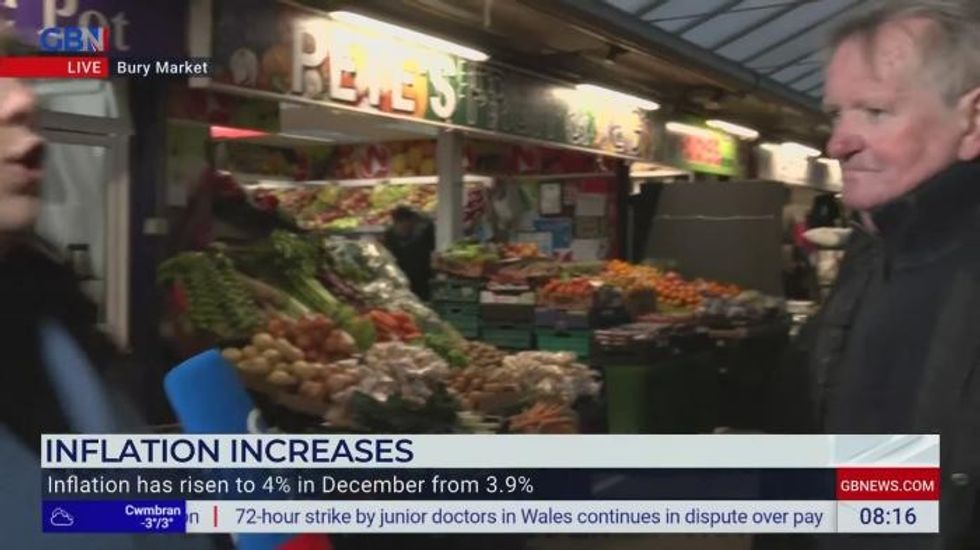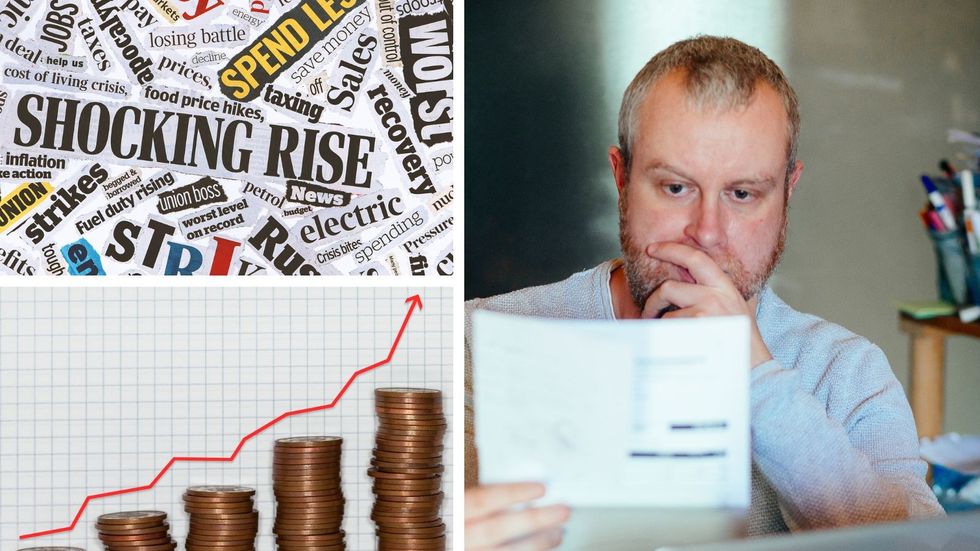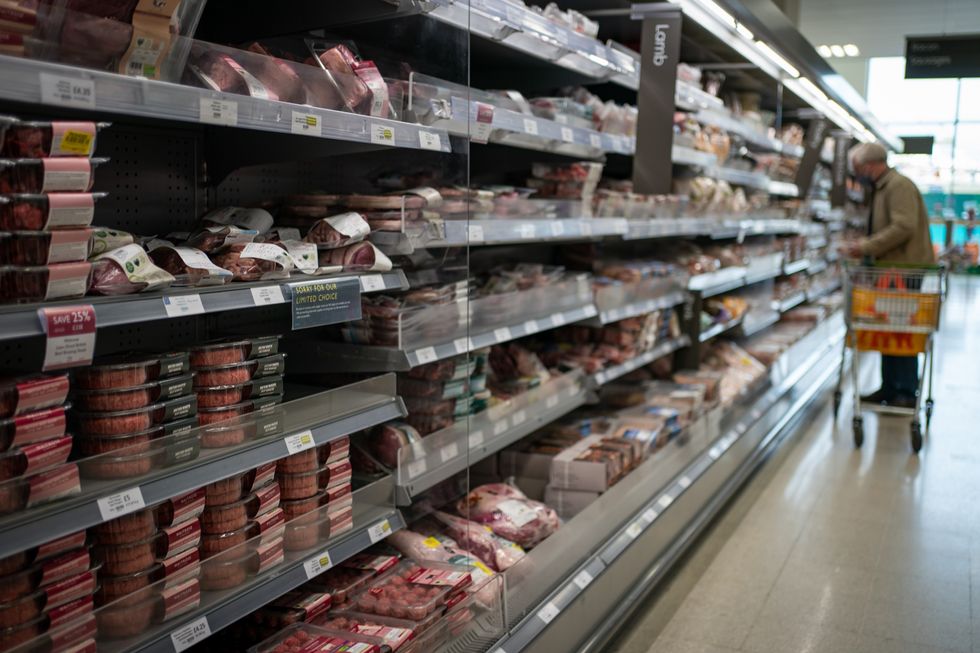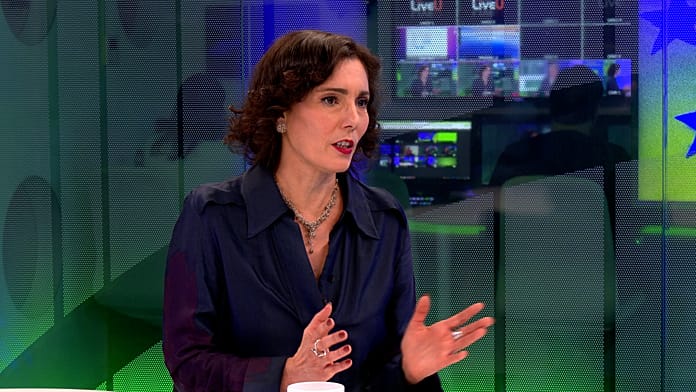UK economy revival outpaces Germany and France – but Britain to have highest inflation in G7
Britain’s economy is showing signs of significant growth but economists are warning the UK will have the highest inflation figures out of the G7. The nation’s services sector grew at its fastest pace in eight months at the same time companies in France and Germany experienced a slump, according to the latest data.The S&P Global UK Services purchasing managers’ index (PMI) increased to 54.3 last month, up from 53.4 in December 2023. This is the third month in a row that the services sector PMI has risen with S&P Global’s economics director Tim Moore hailing the UK's “stronger business and consumer spending”.However, France’s service sector is experiencing its longest downturn in more than 10 years with its PMI dropping for the eight consecutive month. Germany’s service industry PMI plummeted to a five-month low.Norman Liebke, an economist at Hamburg Commercial Bank, said “the best we can say for the first quarter is that we expect a stagnation of the French economy”. His colleague Dr Cyrus de la Rubia described Germany’s sector as “firmly entrenched in inflationary territory”. The UK economy will still experience the highest inflation levels of the G7 this year despite the cost of living crisis easing, based on new forecasts.Do you have a money story you’d like to share? Get in touch by emailing money@gbnews.uk.The Organisation for Economic Co-operation and Development (OECD) has revised its predictions for the headline Consumer Price Index (CPI) rate to average 2.8 per cent in 2024 and 2.4 per cent the following year. The original forecasts were 2.9 per cent and 2.5 per cent for 2024 and 2025, respectively, in November.Despite Britain’s cost of living pressures improving, this would still see the country suffer the highest level of inflation of all the G7 countries in both years. This year, inflation in the UK is forecast to be higher than Canada at 2.6 per cent, France at 2.7 per cent, Germany at 2.6 per cent, Italy at 1.8 per cent, Japan at 2.6 per cent and the US at 2.2 per cent.As well as this forecast, the OECD warned about the risk of inflation rising globally due to ongoing geopolitical tensions and the Red Sea shipping disruption due to Houthi attacks on vessels. Furthermore, the organisation downgraded Britain’s growth forecast for last year to 0.1 per cent from 0.5 per cent.However, it stood by its previous prediction that the country’s gross domestic product (GDP) will expand by 0.7 per cent next year and 1.2 per cent in 2025.According to the OECD, central banks may begin to slash interest rates in 2024 sooner than previously expected.Despite this, the organisation warned that monetary policy has to be “prudent” going forward and that it is “too soon to be sure than underlying price pressures are fully contained”.Mathias Cormann, the OECD’s secretary-general, shared: “Monetary policy needs to remain prudent, though central banks could start to lower interest rates this year, provided that inflation continues to ease.”Last week, the Bank of England cited concerns over the Red Sea conflict and the potential impact it will have on global inflation but said the UK has experienced minimal impact so far.LATEST DEVELOPMENTS:£299 cost of living payment will be paid from tomorrow but you could still lose outBoiler ‘tax’ forcing Britons to pay £120 more for missed heat pump targets set to be scrappedState pension age 'needs to increase to 71 by 2050 to maintain status quo’The central bank opted to hold interest rates at 5.25 per cent after inflation jumped slightly to four per cent in December.Despite this blip, the Bank shared it could begin to cut borrowing costs later in the year if inflation continues to ease.Included in its latest report, the OECD urged central banks to remain restrictive for some time to come”.Based on the organisation forecasts, Germany is set for the weakest expansion in the G7 this year, at just 0.3 per cent.This is followed by France at 0.6 per cent and then both the UK and Italy at 0.7 per cent, according to the OECD.

Britain’s economy is showing signs of significant growth but economists are warning the UK will have the highest inflation figures out of the G7. The nation’s services sector grew at its fastest pace in eight months at the same time companies in France and Germany experienced a slump, according to the latest data.
The S&P Global UK Services purchasing managers’ index (PMI) increased to 54.3 last month, up from 53.4 in December 2023. This is the third month in a row that the services sector PMI has risen with S&P Global’s economics director Tim Moore hailing the UK's “stronger business and consumer spending”.
However, France’s service sector is experiencing its longest downturn in more than 10 years with its PMI dropping for the eight consecutive month. Germany’s service industry PMI plummeted to a five-month low.
Norman Liebke, an economist at Hamburg Commercial Bank, said “the best we can say for the first quarter is that we expect a stagnation of the French economy”. His colleague Dr Cyrus de la Rubia described Germany’s sector as “firmly entrenched in inflationary territory”. The UK economy will still experience the highest inflation levels of the G7 this year despite the cost of living crisis easing, based on new forecasts.
Do you have a money story you’d like to share? Get in touch by emailing money@gbnews.uk.

The Organisation for Economic Co-operation and Development (OECD) has revised its predictions for the headline Consumer Price Index (CPI) rate to average 2.8 per cent in 2024 and 2.4 per cent the following year. The original forecasts were 2.9 per cent and 2.5 per cent for 2024 and 2025, respectively, in November.
Despite Britain’s cost of living pressures improving, this would still see the country suffer the highest level of inflation of all the G7 countries in both years. This year, inflation in the UK is forecast to be higher than Canada at 2.6 per cent, France at 2.7 per cent, Germany at 2.6 per cent, Italy at 1.8 per cent, Japan at 2.6 per cent and the US at 2.2 per cent.
As well as this forecast, the OECD warned about the risk of inflation rising globally due to ongoing geopolitical tensions and the Red Sea shipping disruption due to Houthi attacks on vessels. Furthermore, the organisation downgraded Britain’s growth forecast for last year to 0.1 per cent from 0.5 per cent.
However, it stood by its previous prediction that the country’s gross domestic product (GDP) will expand by 0.7 per cent next year and 1.2 per cent in 2025.
According to the OECD, central banks may begin to slash interest rates in 2024 sooner than previously expected.
Despite this, the organisation warned that monetary policy has to be “prudent” going forward and that it is “too soon to be sure than underlying price pressures are fully contained”.
Mathias Cormann, the OECD’s secretary-general, shared: “Monetary policy needs to remain prudent, though central banks could start to lower interest rates this year, provided that inflation continues to ease.”
Last week, the Bank of England cited concerns over the Red Sea conflict and the potential impact it will have on global inflation but said the UK has experienced minimal impact so far.
LATEST DEVELOPMENTS:
- £299 cost of living payment will be paid from tomorrow but you could still lose out
- Boiler ‘tax’ forcing Britons to pay £120 more for missed heat pump targets set to be scrapped
- State pension age 'needs to increase to 71 by 2050 to maintain status quo’

The central bank opted to hold interest rates at 5.25 per cent after inflation jumped slightly to four per cent in December.
Despite this blip, the Bank shared it could begin to cut borrowing costs later in the year if inflation continues to ease.
Included in its latest report, the OECD urged central banks to remain restrictive for some time to come”.
Based on the organisation forecasts, Germany is set for the weakest expansion in the G7 this year, at just 0.3 per cent.
This is followed by France at 0.6 per cent and then both the UK and Italy at 0.7 per cent, according to the OECD.







































